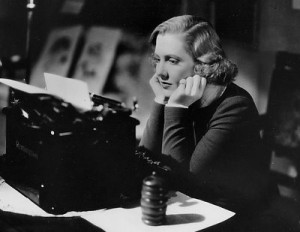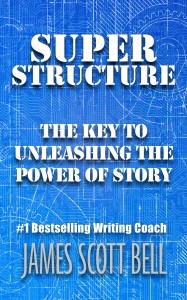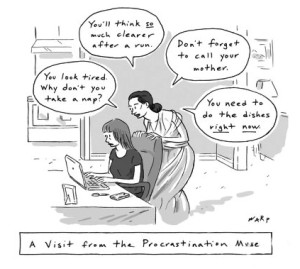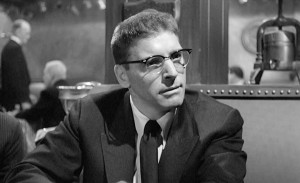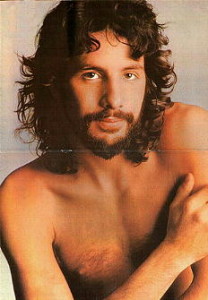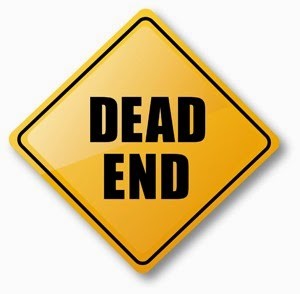Today TKZ welcomes K.M. Weiland as our guest blogger. Katie will be sharing a critical but often misunderstood element of the novel: the Inciting Event. Enjoy her insights and be sure to visit her highly informative, award-winning writer’s blog, Helping Writers Become Authors.
———————————
 What the heck is the Inciting Event? That’s a question just about any writer can answer. The trouble is that sometimes we all have a different answer.
What the heck is the Inciting Event? That’s a question just about any writer can answer. The trouble is that sometimes we all have a different answer.
- Is the Inciting Event the first thing that happens in the story?
- Is it the moment that kicks off the plot and the conflict?
- Is it the First Plot Point at the end of the First Act?
- Is it something in between?
- Is it something that happens before the story ever starts?
The chief trouble with identifying the Inciting Event is that the term is used rather wildly to apply to just about any of the above. One writer calls the Hook the Inciting Event, another calls it the First Plot Point. Argh! No wonder we’re all so confused.
 The confusion has grabbed me in its claws as well. In Structuring Your Novel, I wrote the following about the Inciting Event:
The confusion has grabbed me in its claws as well. In Structuring Your Novel, I wrote the following about the Inciting Event:
What’s important isn’t so much nailing down your Inciting Event to a specific place in the story, as it is presenting the Inciting Event at the optimal moment. Sometimes that means throwing the Inciting Event at readers right away, and sometimes that means holding off a bit.
I admit it: that’s a little vague, isn’t it?
Since writing Structuring Your Novel, I’ve made some extremely interesting discoveries about the Inciting Event, which have helped me refine my own stories far more than did such vague notions. So let’s all advance our understanding of this frustratingly important moment in our stories, shall we?
The Single Most Important Thing to Understand About “The Inciting Event”
The most important thing you can take away from this post is this: There isn’t just one moment that can be called “the inciting event.” There are three.
The vast majority of confusion over this structural pillar is the fact that we find different writers referring to three very distinct moments in the story by the same name. I’ve been guilty of it too, if only because I hadn’t yet grasped the differences between the three. These three different story structure moments are completely different from one another and all equally necessary to your story.

The 3 Different “Inciting Events”
1. The First Moment in the Story
Probably the most common understanding of the Inciting Event is that it’s the first moment in your plot. This is the beginning of your story–possibly even the first sentence. This opening scene will introduce your main character and the main conflict. It’s the first domino in the line of dominos that forms your plot. It’s the beginning of your story. If you open before this moment, then you’ve opened too soon.
Why We Think This is the Inciting Event
It’s no wonder we think of this moment as the Inciting Event. “Incite” seems to indicate the match striking the tinder of our plot. Therefore, this moment necessarily has to be the starting point, right? Well, yes and no. Yes, this first moment in your plot is what starts the whole thing moving. But, no, this moment is more about introducing your story than inciting it.
What It Really Is
This first crucial moment in your story is more properly the Hook. There is, of course, more involved in the Hook than just this (namely, its responsibility to grab your readers’ curiosity). But the Hook is the first structural moment in your story. It’s the first interesting moment, and, as such, it’s what flicks over that first domino and starts things rolling.
Where It Belongs
This opening moment–the Hook–belongs (surprise!) in the opening. It’s your opening scene–the first thing that happens in your story–possibly even the first line.
What We Should Really Call It
The Hook.
Examples
Bram Stoker’s Dracula opens with Jonathan Harker arriving in Budapest on his way to meet with his strange client, Count Dracula. This moment launches the plot (after all, prior to Harker’s meeting with Dracula, there is no story) and grabs reader curiosity.

Stephen Spielberg’s Raiders of the Lost Ark opens with the famous sequence in which Indy–dogged by his nemesis Belloc–infilitrates the South American temple and steals the golden idol. The sequence itself has nothing to do with the main conflict, but it brilliantly introduces the protagonist, grabs the viewer, and kicks off the rivalry between Indy and Belloc.
Chris Wedge and Carlos Saldanha’s Ice Age kicks off with the subplot character Scrat, whose single-minded pursuit of his acorn causes the Ice Age.
2. The First Plot Point
Okay, so if the Hook is something different from the Inciting Event, then perhaps the Inciting Event is the all-important big moment that happens at the end of the First Act: the First Plot Point. The First Plot Point is where your story gets going in earnest. Something dynamic and irreversible happens at this moment. It kicks your character forever out of the passivity of his Normal World and launches him into a desperate series of reactions as he scrambles to gain some control over the conflict.
Why We Think This is the Inciting Event
Like I said, this is the moment where your story really begins. This is the moment that fully engages your character in the conflict. He couldn’t walk away now, even if he really wanted to. It’s definitely a moment that incites your character. But if this is the first incendiary moment in your story, then your pacing is likely to be pretty dull. Remember, the First Plot Point is going to take place around the 25% mark in your story. Something had to happen in between the Hook and the 25% mark, right?
What It Really Is
The First Plot Point is just that–the First Plot Point. It’s the doorway between the end of the First Act and the beginning of the Second. It’s also very likely to be the Key Event (which I’ll get into below).
Where It Belongs
The First Plot Point always ends the First Act. Optimally, it should be placed at the 25% mark.
What We Should Really Call It
The First Plot Point.
Examples
In Dracula, the First Plot Point is the moment when the dreaded Count arrives (via spooky shipwreck) in England. Lots happens prior to this scene, but this is the moment that irrevocably engages all of the main characters in their mortal struggle with the vampire.
In Raiders of the Lost Ark, the First Plot Point occurs when the Nazis burn down Marian’s bar, forcing her to escape with Indy to Cairo. Again, lots happened prior to this, but this moment irrevocably launches the main plot by bringing the two primary characters together and sending them to the primary setting.

In Ice Age, the First Plot Point happens when Manny and Sid rescue the human baby and meet Diego. This launches their main story goal (return the baby to his father) and the main conflict with the saber-tooth tigers.
3. The First Act’s Turning Point
And now, at last, we reach the secret member of our trio of “Inciting Events.” This is a vital structural moment–and yet most authors overlook it completely. Halfway through the First Act, something happens–a turning point. Usually, this is the Call to Adventure (which the hero starts out by rejecting). It’s the moment when his Normal World is significantly rocked by the conflict for the first time. His world won’t yet be upended by that conflict (not until the First Plot Point), but we might think of it as the moment when the match is officially lit and held over the tinder of the conflict.
Why We Think This is the Inciting Event
Technically, most writers don’t think of this turning point as the Inciting Event for the simple reason that they really don’t think about it at all. But let’s think about it now, shall we? Aside from breaking up the potential monotony of the First Act and providing focus for the first quarter of the story, this turning point fulfills one of the most important roles in your story’s beginning.
The first eighth of the story (from the Hook to this turning point) is all set-up. Readers are familiarizing themselves with your characters, figuring out the characters’ goals, and learning the stakes. Readers need that time in order to get their bearings before the main conflict really starts heating up.
Then comes this all-important turning point at the 1/8th mark (around the 12% mark). It shakes everything up, redirects readers’ focus to the primary conflict, and sends the protagonist hurtling right for the deciding moment of the First Plot Point.
The next eighth of the story (from the turning point to the First Plot Point) is where you then start positioning the final pieces necessary for the main conflict, while ramping up the tension to lead right into the First Plot Point.
What It Really Is
This turning point doesn’t have a proper name other than the Inciting Event. It’s the moment that truly launches the main conflict. It’s inciting and (hopefully) exciting. When I talk about the Inciting Event (including in the Story Structure Database), this is the moment I’m referring to.
Where It Belongs
The Inciting Event–the turning point in the First Act–should optimally be placed at the 12% mark, halfway through the First Act. The timing is important because it gives you the space you need in the beginning of the book to get everything set up, and then provides the necessary space to build upon the Inciting Event before you reach the place of no return that is the First Plot Point.
What We Should Really Call It
The Inciting Event.
Examples
In Dracula, the Inciting Event is the moment (back in Budapest) when Harker first witness the Count’s unearthly powers when he sees Dracula crawling down the castle wall, upside-down.
In Raiders of the Lost Ark, the Inciting Event occurs when Indy is summoned from his classroom and recruited by the U.S. government to track down the Ark of the Covenant.
In Ice Age, the Inciting Event occurs when Manny the mammoth and Sid the sloth meet for the first time.

How Does the Key Event Play In?
The final element in this intricate tapestry is the Key Event. What is the Key Event? Think of it as the missing half of the Inciting Event. The Inciting Event  kicks off the plot; the Key Event is what then involves your character in the Inciting Event. In Screenplay, Syd Field describes it like this:
kicks off the plot; the Key Event is what then involves your character in the Inciting Event. In Screenplay, Syd Field describes it like this:
The Inciting incident… sets the story in motion … [while] the key incident [is] what the story is about, and draws the main character into the story line.
As such, the Key Event will always take place after the Inciting Event and within the First Act. Almost always, the Key Event will coincide with the First Plot Point.
The Inciting Event (remember: that’s the turning point halfway through the First Act) brings the conflict to the protagonist’s awareness. But the protagonist still won’t fully engaged with the conflict. He may make a half-hearted attempt to resolve it. Or he may try to walk away from it entirely. Until the Key Event.
The Key Event is what sucks him irrevocably into the conflict. Sounds an awful lot like the First Plot Point, doesn’t it?
- Dracula‘s main conflict is that of his preying upon the Englishwomen Mina and Lucy. As such, the Key Event occurs at the First Plot Point when he is shipwrecked in England, bringing the conflict right to their doors.
- Indy’s Key Event is also his movie’s First Plot Point, since it is both the first time Indy has engaged with his Nazi antagonists and also the moment when he becomes personally involved thanks to his relationship with Marian.
- Same for Ice Age. Up until the Key Event at the First Plot Point, Sid and Manny didn’t even know about the human baby’s danger, much less have any stake in helping him.
If we recognize the Inciting Event as this oft-overlooked turning point in the First Act, the entire structure of our beginnings becomes much clearer, much tighter, and much more effective. Take a look at some of your favorite books and movies. How are they using the time before the turning point to set up their stories–and then utilizing the turning point to tighten the focus up until to the First Plot Point? Even more importantly, how can you do the same in your own stories?
——————————–
K.M. Weiland lives in make-believe worlds, talks to imaginary friends, and survives primarily on chocolate truffles and espresso. She is the IPPY and NIEA Award-winning and internationally published author of the Amazon bestsellers Outlining Your Novel and Structuring Your Novel, as well as Jane Eyre: The Writer’s Digest Annotated Classic. She writes historical and speculative fiction from her home in western Nebraska and mentors authors on her award-winning website Helping Writers Become Authors.



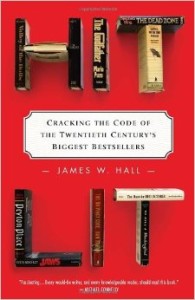








 And sales boomed. The controversy had become national news. The publicity turned out to be priceless.
And sales boomed. The controversy had become national news. The publicity turned out to be priceless.